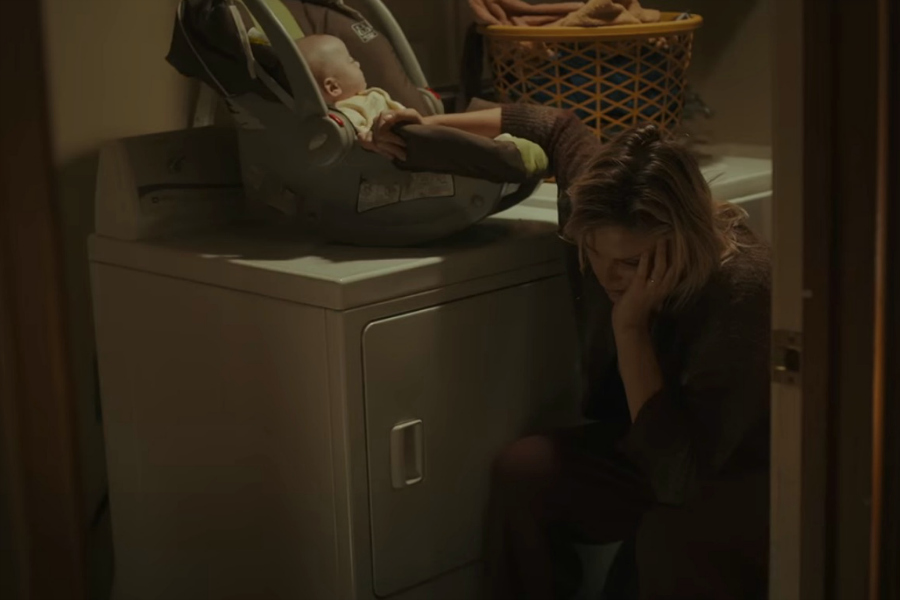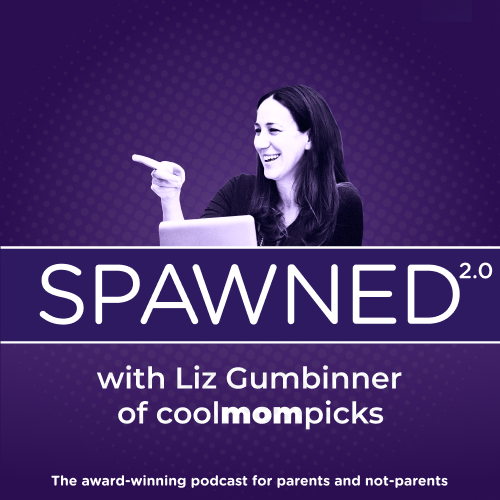There are a lot of sentimental movies about motherhood; Tully isn’t one of them. And yet it’s absolutely 100% worth your while.
Oscar-winning writer Diablo Cody‘s latest script, directed by Jason Reitman, is a gritty, sometimes painfully realistic look at early motherhood. It revolves around Marlo, beautifully played by Charlize Theron, as an exhausted mom of two in her forties who’s about to deliver a third (and unplanned) baby. When her wealthy brother springs for a night nanny named Tully (Mackenzie Davis), things get…interesting.
Sound like a light, fun date night movie? No, it’s not. But stick with me. Because as much as I wasn’t expecting to love it, this movie unravelled me in the best possible way.
Here are 5 reasons that I really hope that all moms — and the people who love them — should see Tully.
Related: The Wonder Movie: Editors Top 10 of the Year
1. Tully shows you that a more exciting life you gave up to have kids might be exactly what your kids need.
Throughout the movie, Marlo wrestles with the way her cool life as a young adult in Bushwick has evolved into a very suburban mid-adulthood, complete with the requisite mortgage and an office job to help pay it. However Tully helps her realize that even though the repetition of parenthood can feel stultifying to us as adults, routine and stability are exactly what kids need to thrive.
Serving mac n cheese for the third time in a row? Pat yourself on the back; you may actually be doing your kids a big favor.
2. Tully will make you feel less alone as a mom.
When I said this movie is realistic, I mean engorged breasts, adult diapers, and meltdowns in the school parking lot. But these brutally real depictions are part of what makes the movie so relatable.
It’s comforting to see the ordinarily svelte and glamorous Charlize Theron 50 pounds heavier and visibly exhausted. And spilling her freshly pumped milk. And being forced to have dinner with her wealthy brother and sister-in-law while not at her very best.
It’s not just me, phew!
3. Tully reminds you that being a good mom means taking care of yourself, too
Marlo struggles with the idea that being a great mom means making homemade Minion cupcakes, maintaining a sparkling home, and donning a sexy waitress uniform to seduce your husband. However the movie (thank goodness) reminds us that it’s important to give yourself permission to skip those activities and get a good night’s sleep instead. I’m with Marlo on this one.

Related: The totally realistic, non-lecturey book about self-care I wish I’d had as a new mom.
4. Tully may help create more empathy among non-parents
I teared up so many times during this movie. However the moments that really undid me were the ones when someone — usually Tully — showed compassion to Marlo when she needed it most.
Moms going through similarly tough times can feel starved for these moments of kindness, especially when the people who surround you may don’t understand (or remember) the battering ram that is newborn life. I imagine that for non-parents, the unflinchingly realistic Tully is a great opportunity to see that motherhood isn’t all about Mother’s Day celebrations and perfect Instagram moments.
5. Tully will spark excellent discussions about PPD — and how it can look different than expected
Tully was written from Diablo Cody’s own personal experience with mental health issues and was intended to spark discussion — and that it does.
There is a lot of controversy about Tully‘s depiction of postpartum depression (note: major spoilers through this link and in every article about it, so don’t click if you don’t want spoilers). Mental health experts are making some fantastic, very valid and very important points. However in Tully’s defense, I hope that may lead viewers unfamiliar with PPD to get more information.
What stands out to me is that Marlo seems to be at her best when she’s actually suffering the most, and that’s incredibly illuminating.
Perhaps the film will lead more people to ask new moms whether they’re in need, if they’re exhibiting some concerning signs of PPD; it’s better to ask whether she needs help — and keep an eye on her — than to just assume she’s okay because she says so.
All images: Focus Features









